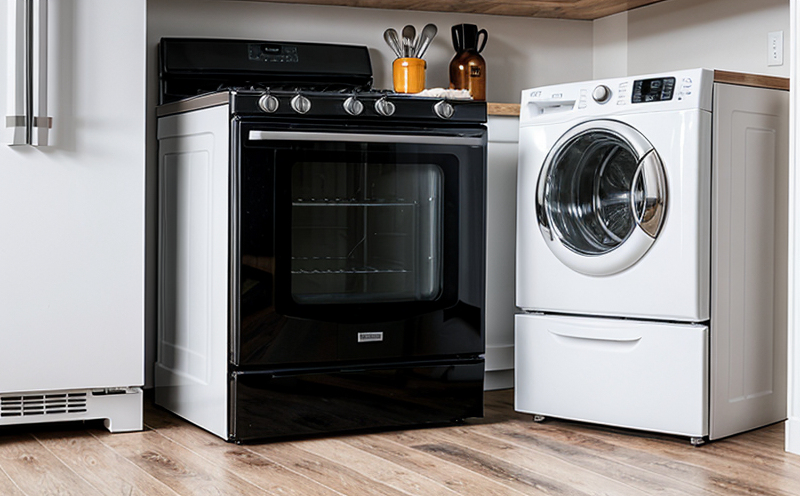Temperature Rise Testing of Electrical Appliances
Temperature rise testing is a critical process in the quality assurance and compliance assessment of electrical appliances. This test evaluates how much the temperature increases within an appliance under specific operating conditions, ensuring that the device complies with safety standards and performs efficiently without overheating to dangerous levels.
The primary objective of this test is to identify any potential thermal hazards that could arise from prolonged use or malfunctions in household appliances such as refrigerators, ovens, washing machines, and air conditioners. By measuring the temperature rise, manufacturers can ensure that their products meet stringent safety regulations set by organizations like Underwriters Laboratories (UL), European Committee for Standardization (CEN/TC 121), and International Electrotechnical Commission (IEC).
During this test, a calibrated thermometer or thermocouple is attached to the hottest part of the appliance. The temperature is then measured at regular intervals while the device operates normally according to its intended use. If the temperature exceeds predefined limits for extended periods, it may indicate design flaws that need addressing before market release.
The importance of this test cannot be overstated as excessive heating can lead to shortened product lifespan, increased energy consumption, and even fire hazards. Moreover, many countries have strict laws requiring manufacturers to conduct such tests on their products before they enter the marketplace. Failure to comply with these regulations could result in hefty fines or product recalls.
To perform this test accurately, specialized equipment is required including temperature sensors capable of operating over wide ranges without losing precision. Additionally, controlled environments where consistent power supply and ambient conditions can be maintained are essential for reliable results.
Benefits
- Ensures product safety and prevents potential fire risks.
- Promotes energy efficiency by optimizing heat dissipation mechanisms.
- Aids in extending the operational life of appliances through proper design.
- Facilitates compliance with international standards such as IEC 60335-2-80.
The benefits extend beyond mere regulatory adherence; they also contribute to enhancing brand reputation and customer satisfaction. Consumers trust brands that prioritize safety above all else, making it easier for companies to build loyal customer bases.
Why Choose This Test
For quality managers and compliance officers looking to ensure their products meet rigorous safety standards, temperature rise testing offers several advantages:
- Reduces Risk: By identifying potential overheating issues early in the development process, companies can mitigate risks associated with product failures.
- Enhances Reputation: Products that pass these stringent tests are seen as superior by consumers, thus boosting brand image and market positioning.
- Cost Efficiency: Early detection of problems leads to fewer post-launch recalls and less damage to the company's reputation.
In addition to these benefits, conducting temperature rise tests helps maintain consistency across batches of products, ensuring uniform performance standards. This is crucial for maintaining high-quality control throughout production cycles.
Use Cases and Application Examples
| Appliance Type | Temperature Rise Limits (°C) |
|---|---|
| Refrigerator | ≤15°C above ambient temperature |
| Oven | ≤20°C above ambient temperature |
| Dryer | ≤30°C above ambient temperature |
The following examples illustrate typical scenarios where temperature rise testing plays a crucial role:
- Refrigerators: Ensuring that the condenser coils do not overheat during operation. This helps maintain energy efficiency and prolongs the appliance's lifespan.
- Ovens: Verifying that the heating elements reach their intended temperatures without causing excessive heat around them, which could pose a fire risk.
- Dryers: Checking for overheating in the drum or motor to prevent damage from prolonged exposure to high temperatures.
These tests are essential for ensuring that household appliances operate safely and efficiently within specified parameters. Non-compliance with these standards could lead to product recalls and legal action, emphasizing the necessity of thorough testing at every stage of production.





